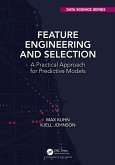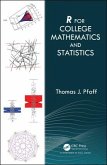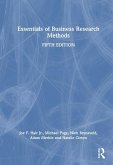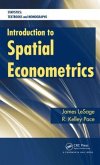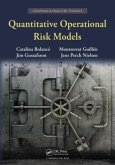This book is about research design, specifically concerning research that uses non-experimental data to figure out whether one thing causes another. It is separated into two halves, each with different approaches to that subject. Concepts are demonstrated with a heavy emphasis on graphical intuition and the question of what we do to data.
Hinweis: Dieser Artikel kann nur an eine deutsche Lieferadresse ausgeliefert werden.
Hinweis: Dieser Artikel kann nur an eine deutsche Lieferadresse ausgeliefert werden.
"Nick has created a classic. Can't say it any other way. It's the replacement for Mastering Metrics that we all wanted. This is the book that will empower students in both understanding what econometrics is or can be, and how to get from A to B with programming practice. He has created numerous on-ramps into econometrics that can help hit many different types of students at where they are, rather than teaching to students who most resemble the kind of student that our econometrics and statistics professors were when they were the students' age. I mean that in the most flattering way possible.
I think the book is phenomenal and will sell well. It's basically an ambitious book that seeks to take students with zero knowledge of causal inference, but also zero knowledge of programming languages, and possibly even minimal knowledge of statistics, and over 600 pages with excellent writing, extensive programming examples across multiple languages, and causal graphs cover just about everything remotely conceivable to make a student conversant and maybe even competent. Except for my book, there's nothing like what Nick has done on the market ...It will be a very popular companion textbook on many econometrics courses, and may even help facilitate the creation of more causal inference courses are all levels. I think Nick has absolutely nailed it."
- Scott Cunningham, Baylor University (author of Causal Inference: A Mix Tape)
I think the book is phenomenal and will sell well. It's basically an ambitious book that seeks to take students with zero knowledge of causal inference, but also zero knowledge of programming languages, and possibly even minimal knowledge of statistics, and over 600 pages with excellent writing, extensive programming examples across multiple languages, and causal graphs cover just about everything remotely conceivable to make a student conversant and maybe even competent. Except for my book, there's nothing like what Nick has done on the market ...It will be a very popular companion textbook on many econometrics courses, and may even help facilitate the creation of more causal inference courses are all levels. I think Nick has absolutely nailed it."
- Scott Cunningham, Baylor University (author of Causal Inference: A Mix Tape)



